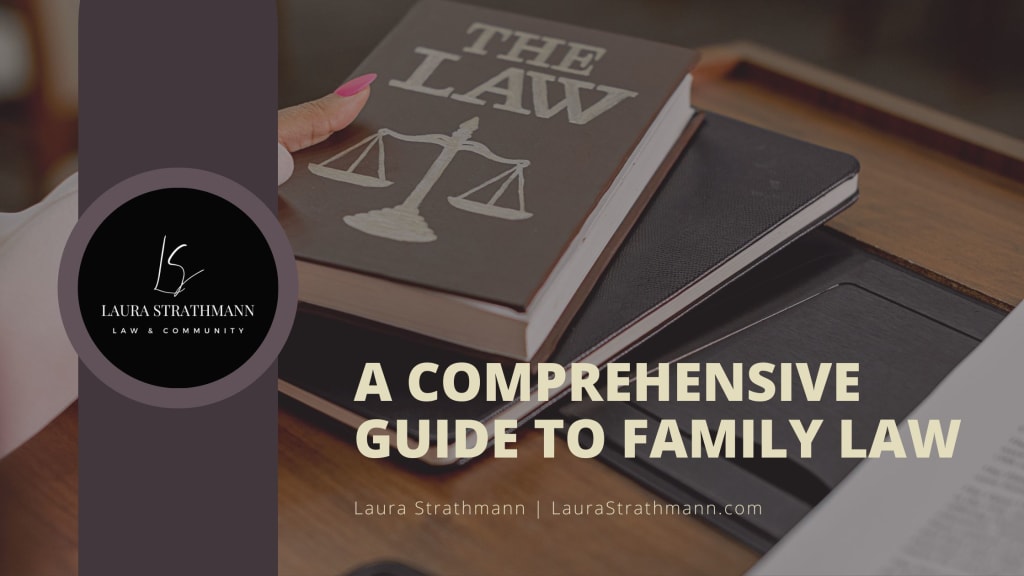Laura Strathmann | A Comprehensive Guide to Family Law | El Paso, Texas
Laura Strathmann, a Family Court Judge in El Paso, Texas, shares a comprehensive guide to family law.

Family law is a crucial branch of legal practice that deals with matters related to family relationships and domestic issues. Its scope encompasses a wide range of topics, including marriage, divorce, child custody, adoption, and property division. Understanding family law is essential for individuals and families navigating through life’s various challenges and seeking legal solutions to protect their rights and well-being.
Marriage and Divorce
Family law plays a central role in governing marriages and the dissolution of marriages through divorce. When two individuals decide to marry, they enter into a legally binding contract with various rights and responsibilities. Family law governs the legal requirements for marriage, including age, consent, and prohibited relationships.
Similarly, when a marriage ends, family law guides the process of divorce. This includes the grounds for divorce, property division, spousal support, and child custody arrangements. Each jurisdiction may have different divorce laws, such as fault-based or no-fault divorce, which impact the legal proceedings and outcomes.
Child Custody and Support
Child custody and support are among the most emotionally charged aspects of family law. When parents separate or divorce, the well-being of their children becomes a priority. Family law addresses issues related to legal and physical custody, determining where the child will reside and who will make major decisions on their behalf.
Additionally, family law governs child support, which ensures that both parents contribute financially to their children’s upbringing. Child support calculations take into account factors such as each parent’s income, the child’s needs, and custody arrangements. These laws aim to protect the best interests of the child while ensuring that both parents fulfill their responsibilities.
Adoption and Surrogacy
Family law also covers matters related to adoption and surrogacy. Adoption is a legal process that establishes the rights and responsibilities of adoptive parents for a child not biologically their own. It involves terminating the rights of the child’s birth parents and transferring parental rights to the adoptive parents. Family law ensures that adoptions follow strict legal procedures, safeguarding the child’s welfare.
Surrogacy, on the other hand, deals with arrangements where a woman carries and gives birth to a child on behalf of her intended parents. Family law governs the legal recognition of surrogacy agreements, parentage, and the rights and responsibilities of all parties involved.
Domestic Violence and Restraining Orders
Family law also addresses issues of domestic violence and provides protection for victims through restraining orders or protection orders. These legal instruments aim to prevent abusive behavior and ensure the safety of the affected family members. Family law courts take allegations of domestic violence seriously and act swiftly to protect victims from harm.
Property Division and Alimony
In the event of divorce or separation, family law governs the equitable division of marital property and assets. Equitable distribution does not necessarily mean an equal 50–50 split; instead, it aims to divide assets fairly based on factors like the length of the marriage, each spouse’s contributions, and financial needs.
In some cases, family law also addresses alimony or spousal support, which may be awarded to one spouse to provide financial assistance after divorce. The amount and duration of alimony payments are determined based on various factors, such as the length of the marriage, the recipient’s financial needs, and the payer’s ability to pay.
Conclusion
Family law is a complex and multifaceted area of legal practice that has a profound impact on the lives of individuals and families. From marriage and divorce to child custody, adoption, and property division, family law governs a wide range of critical issues. Its principles strive to protect the best interests of children, ensure fair and equitable treatment of spouses and offer legal remedies for those facing domestic violence or other family-related challenges.
Navigating family law matters can be emotionally challenging, and seeking legal counsel from experienced family law attorneys is crucial for securing your rights and achieving the best possible outcomes. By understanding the fundamental principles and legal processes of family law, individuals and families can make informed decisions and find the necessary support during times of change and uncertainty.
Originally published at https://laurastrathmann.com on August 1, 2023.
About the Creator
Laura Strathmann
Based out of El Paso, Texas, Laura Strathmann is a highly accomplished legal professional with years of experience as a judge and attorney. In her free time, she invests in her community, volunteering and serving on various boards.






Comments
There are no comments for this story
Be the first to respond and start the conversation.